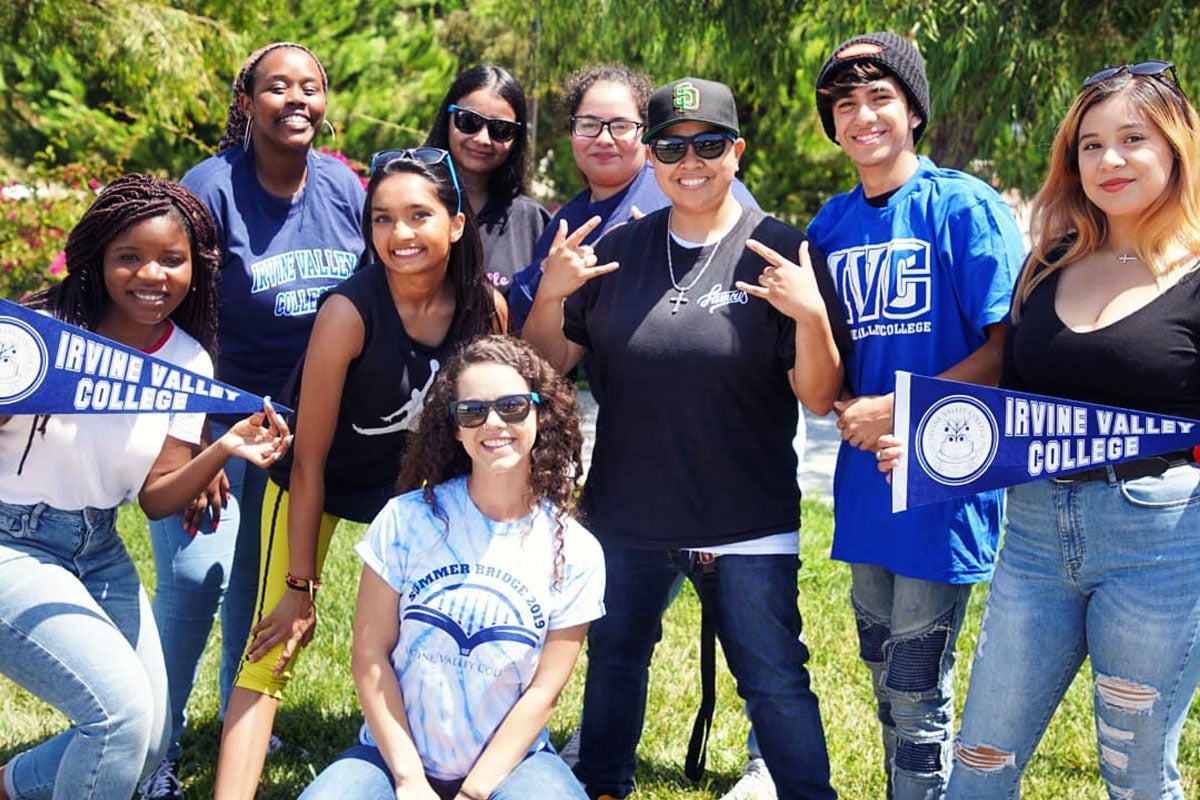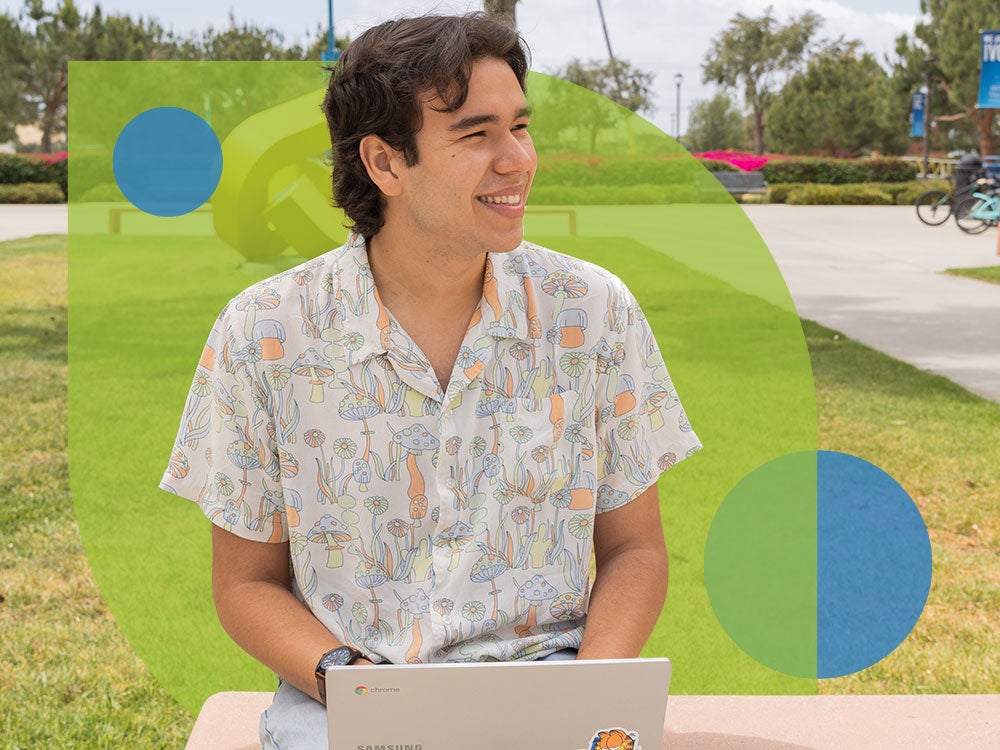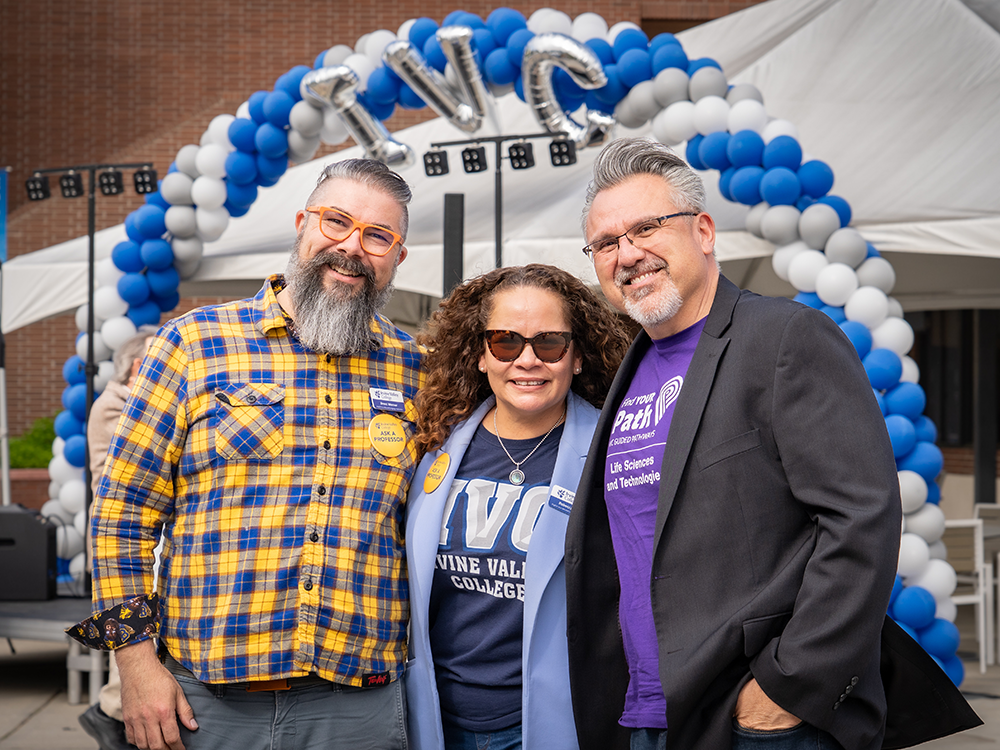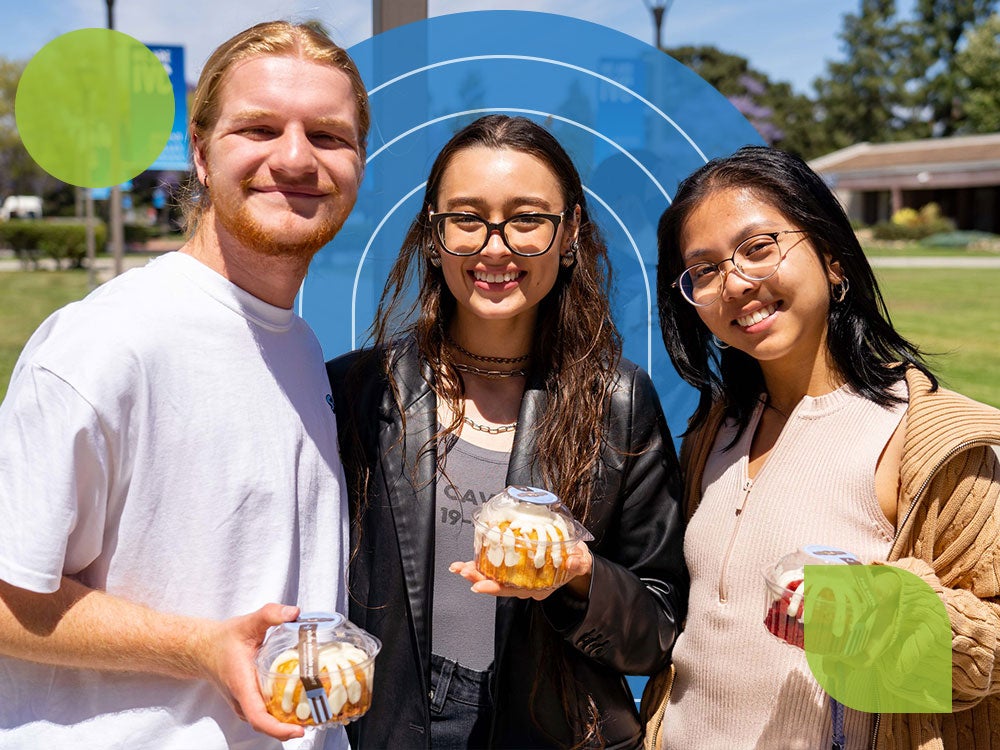You must complete and submit the FAFSA (Free Application for Federal Student Aid) online. You can do this electronically at https://studentaid.gov/h/apply-for-aid/fafsa and you will receive a confirmation once your FAFSA application is being processed. Do not forget to list Irvine Valley College (IVC) on your FAFSA so that the College receives your information electronically. IVC's Federal School Code is 025395.
Yes. Students may submit the FAFSA application as early as October 1 for the next academic year that begins in the following fall semester. Students that apply by March 2 may qualify for a Cal Grant and may receive priority consideration for several types of federal financial aid. Students should apply for assistance as early as possible.
1-800-4-FED-AID / 1-800-433-3243
Note: If you provided an email address, your Student Aid Report (SAR) will be sent to you electronically.
Yes. The application opens Oct 1 of each year!
Yes, by making a correction to your processed FAFSA and adding IVC. IVC's Federal School Code is 025395.
To add IVC to your FAFSA application, log in to your www.fafsa.gov account to view your submitted FAFSA and click the button to "Add/Change School" to add IVC. Don’t forget to click "submit the correction" and view the confirmation page”.
Completing the FAFSA requires that each of the following information is available (for both the student and the parents, if applicable) to enter on the FAFSA:
- Federal Student Aid Identification (FSA ID)*,
- Social Security Number, and
- tax return*, if applicable, and corresponding W2s.
Note:
- *Parent’s signature is required for dependent students.
- **The tax return(s) must be 2 years prior; for example, if it is the 2023-24 FAFSA, then it requires income and tax information from the year 2021.
To apply, submit the Free Application for Federal Student Aid (FAFSA), or the California Dream Act Application (CADAA)(for AB540 students only), and the GPA verification to the California Student Aid Commission (CSAC) by March 2 before the start of the next academic year. If you missed the March 2 filing deadline, you may still qualify by meeting the September 2 deadline for community college students only.
IVC automatically submits GPA verification to CSAC in February and August for those students who have completed 16 or more transferable units at IVC. Students should create a WebGrants 4 Students account at https://mygrantinfo.csac.ca.gov to check on their award status, and make sure that your award is linked with IVC to receive that award. If you are awarded a Cal Grant but it's not linked with IVC, then you will need to update your Cal Grant record to IVC.
According to the U.S. Department of Education, to be eligible to receive federal student aid, the student must:
- demonstrate financial need for need-based federal student aid programs;
- be a U.S. citizen or an eligible noncitizen;
- have a valid Social Security number (with the exception of students from the Republic of the Marshall Islands, Federated States of Micronesia, or the Republic of Palau);
- be enrolled or accepted for enrollment as a regular student in an eligible degree or certificate program;
- be enrolled at least half-time to be eligible for Direct Loan Program funds;
- maintain satisfactory academic progress in college or career school;
- sign the certification statement on the Free Application for Federal Student Aid (FAFSA®) form stating that:
- you are not in default on a federal student loan,
- you do not owe money on a federal student grant, and
- you will use federal student aid only for educational purposes; and
- show you’re qualified to obtain a college or career school education by
- having a high school diploma or a recognized equivalent such as a General Educational Development (GED) certificate;
- completing a high school education in a home-school setting approved under state law (or—if state law does not require a home-schooled student to obtain a completion credential—completing a high school education in a home-school setting that qualifies as an exemption from compulsory attendance requirements under state law); or
- enrolling in an eligible career pathway program and meeting one of the "ability-to-benefit" alternatives described below.
- Additional eligibility requirements can apply in certain situations including for non-U.S. citizens, students with criminal convictions, and students with intellectual disabilities.
- Some federal student aid programs have their own eligibility criteria in addition to the general requirements listed above.
Additionally, once you have a bachelor’s degree or a first professional degree, you are generally not eligible for Pell or Federal Supplemental Educational Opportunity Grants (FSEOG).
Cal Grants are for students who are pursuing an undergraduate degree or vocational or career training, and do not have to be repaid. In addition to meeting the financial criteria and Cal Grant requirements, you must:
- submit the FAFSA or CADAA application and your verified Cal Grant GPA by the deadline
- be a U.S. citizen or eligible noncitizen or meet AB540 eligibility criteria
- be a California resident for 1 year
- attend a qualifying California college
- not have a bachelor’s or professional degree
- have financial need at the college of your choice
- have family income and assets below the minimum levels
- be enrolled or plan to enroll in a program leading to an undergraduate degree or certificate
- be enrolled or plan to enroll at least half time
- not owe a refund on any state or federal grant or be in default on a student loan
- maintain the Satisfactory Academic Progress standards as established by the school. Recipients who do not meet the standards are ineligible for Cal Grant payment and will not use eligibility during the terms they are ineligible for payment.
Students who live in California and meet the eligibility requirements for a non-resident exemption (AB 540 eligible), as well as students who have a U Visa or TPS status, can use the California Dream Act Application (CADAA). Similarly, students without Social Security Numbers or students who have lost Deferred Action for Childhood Arrivals (DACA) status (or never applied for DACA), may still be eligible.
Students should only complete one of the applications (not both the FAFSA and the CADAA), according to the citizenship requirements below:
You are eligible to complete the FAFSA at https://studentaid.gov/h/apply-for-aid/fafsa if you are a:
- U.S Citizen
- Permanent Resident
- Eligible non-citizen
- T Visa holder
You are eligible to complete the CADAA at dream.csac.ca.gov if you are:
- Undocumented
- Have a valid or expired DACA
- U Visa holders
- Have Temporary Protected Status (TPS)
- AB 540 eligible
Yes, a conditional permanent resident is the same as a permanent resident of the U.S. and therefore meets the citizenship requirement to apply for financial aid. If your concern is whether receiving federal or state financial aid will affect your chances of becoming a U.S. Citizen, it shouldn’t be an issue because the Department of Education does not share information with other agencies.
We have Financial Aid Workshops to help students complete their FAFSA and other financial aid processes, including setting up direct deposits, SAP appeals, account access, etc. Click to view the schedule and details of the Financial Aid Workshops offered at IVC.
Students who have earned a bachelor’s degree will only be eligible for the California College Promise Grant (CCPG), which waives the tuition fees for eligible California residents attending California community colleges. Students can submit the Free Application for Federal Student Aid (FAFSA), or the California Dream Act Application (for AB540 students only).
Students may also request Federal Direct Loan if they complete their financial aid file and the Federal Direct Loan process.
Not necessarily. Applicants who apply for financial aid and are under the age of 24 when they complete the FAFSA are considered to be dependents, unless the student:
- is married at the time of applying for financial aid;
- is a graduate or professional student;
- has legal dependents (other than spouse). This is defined as any children who get more than half of their support from the student. It also includes other people who live with the student and get more than half of their support from the student, and will continue to get that support during the upcoming school year;
- is a veteran and has been engaged in active duty in the U.S. Armed Forces (Army, Navy, Air Force, Marines or Coast guard) or is a National Guard or Reserve enlistee who was called to active duty for other than state or training purposes, or was a cadet or midshipman at one of the service academies, and released under a condition other than dishonorable;
- is a ward of the court or both parents are deceased;
- is an emancipated minor as determined by the court in the student's state of legal residence; or
- has been determined to be an unaccompanied youth who is homeless.
Yes. The federal student aid programs are based on the concept that it is primarily you and your family’s responsibility to pay for your education. A dependent student is assumed to have the support of parents, so the parents’ information has to be assessed along with the student’s in order to get a full picture of the family’s financial strength. If you’re a dependent student, it doesn’t mean your parents are required to pay anything towards your education; this is just a way of looking at all applicants in a consistent manner.
Undergraduate students who are under the age 24 as of December 31 of the award year, are considered to be dependent for federal student aid purposes unless they are married, have dependents other than a spouse, or an orphan, or a veteran or active duty member of the US Armed Forces or satisfy other very limited criteria.
However, unusual circumstances may merit a dependency override, which is subject to a case-by-case review by the professional judgment of the college financial aid administrator. These circumstances include an abusive family environment (e.g., court protection from abuse orders against the parents), abandonment by the parents, or the incarceration, hospitalization or institutionalization of both parents.
No, students must be a U.S. Citizen or an eligible non-citizen to be eligible for any federal student aid. However, international students can still apply for IVC Foundation Scholarships. The scholarship application period is from November to February of each academic year.
You are eligible to complete the FAFSA at www.fafsa.gov if you are a:
- U.S Citizen
- Permanent Resident
- Eligible non-citizen
- T Visa holder
You are eligible to complete the CADAA at https://dream.csac.ca.gov if you are:
- Undocumented
- Have a valid or expired DACA
- U Visa holders
- Have Temporary Protected Status (TPS)
- AB 540 eligible





